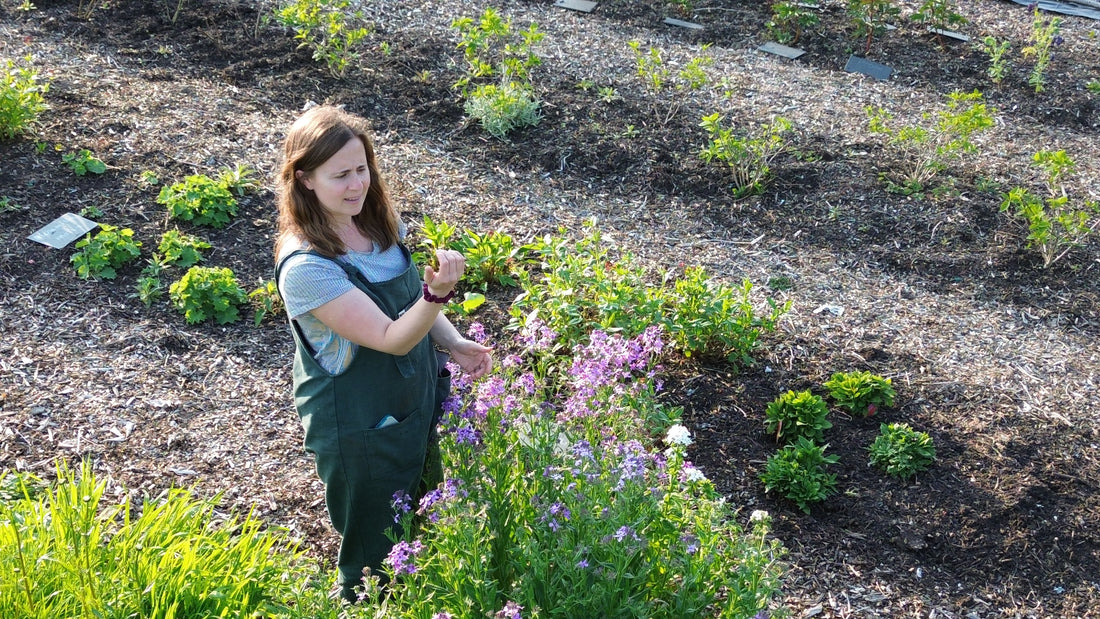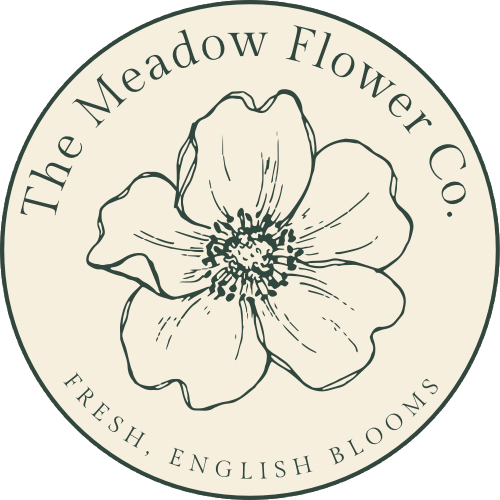
My Sustainability Journey: The Flower Patch
Share
At The Meadow Flower Co., I am committed to eco-friendly practices that enhance the beauty of my blooms while nurturing the environment. This blog post continues my series where I evaluate the impact of my flower growing in order to develop my sustainable credentials.
You can read my previous posts here:-
Embracing the No-Dig Approach
A foundational practice in my flower cultivation is the no-dig method. By refraining from tilling the soil, I preserve its natural structure, promote beneficial microbial activity, and reduce weed growth. This technique involves layering compost directly on the soil surface, allowing plant roots to penetrate naturally, rather than the traditional way of adding organic matter to the soil, which involves digging it in. As you can probably guess, not having to do this exhausting process is a big attraction for me, but the other benefits are manifold: improved soil health enhanced moisture retention and a significant reduction in weeds.
Natural Soil Enhancements: Worm Tea and Eggshell Solutions
In lieu of artificial chemicals, I enrich my soil with natural amendments where necessary. I make my own worm tea, a nutrient-rich liquid derived from my small wormery; this introduces beneficial microbes and essential nutrients, fostering robust plant growth. Similarly, my homemade eggshell solution provides a slow-release source of calcium, vital for cell wall development in plants. These organic inputs contribute to healthier, more resilient flowers without compromising the ecosystem.
Incorporating Perennials for Sustainability
To further my sustainability efforts, over the past couple of years, I've increased the number of perennial plants in my flower beds. Perennials, with their longer life cycles, require less frequent planting, thereby reducing soil disturbance and the energy associated with annual cultivation. This shift not only conserves resources but also provides continuous habitat for local wildlife, enhancing biodiversity on the farm (as well as also being a less time-consuming system).
Sharing Knowledge Through Workshops
I believe in spreading the word about sustainable flower farming so that consumers can make ethical choices about their own flower purchases. To empower others, I offer workshops where gardeners can learn to create their own sustainable cut flower patches, reducing reliance on store-bought flowers. These hands-on sessions cover topics like establishing a no-dig flower patch, soil-blocking techniques to grow healthy seedlings with less plastic, and planning for continuous blooms throughout the season. By sharing my experiences and knowledge, I hope to inspire a community dedicated to eco-friendly gardening practices.
Areas for Improvement: Consistent Use of Cover Crops and Reducing External Inputs
While I've made significant strides, I recognise the need for continuous improvement and avoiding greenwashing. Implementing cover crops more consistently can protect and enrich my flower beds during the winter - although I did this last winter, I have not been able to do it this year, which is not ideal. Cover crops prevent soil erosion, suppress weeds, and add organic matter, further enhancing soil health. Additionally, I'm exploring ways to reduce reliance on purchased municipal compost by increasing my use of farmyard manure from the farm. This will involve better organisation of bed creation than I managed this year.
My journey towards sustainable flower farming is ongoing; by embracing natural methods and continually seeking improvement, I aim to produce beautiful blooms that benefit the environment. I invite you to join me in this endeavor, appreciating the beauty of flowers grown with respect for nature.
For those interested in delving deeper into sustainable practices, I offer workshops that provide hands-on experience and insights into eco-friendly flower farming. More information here.
